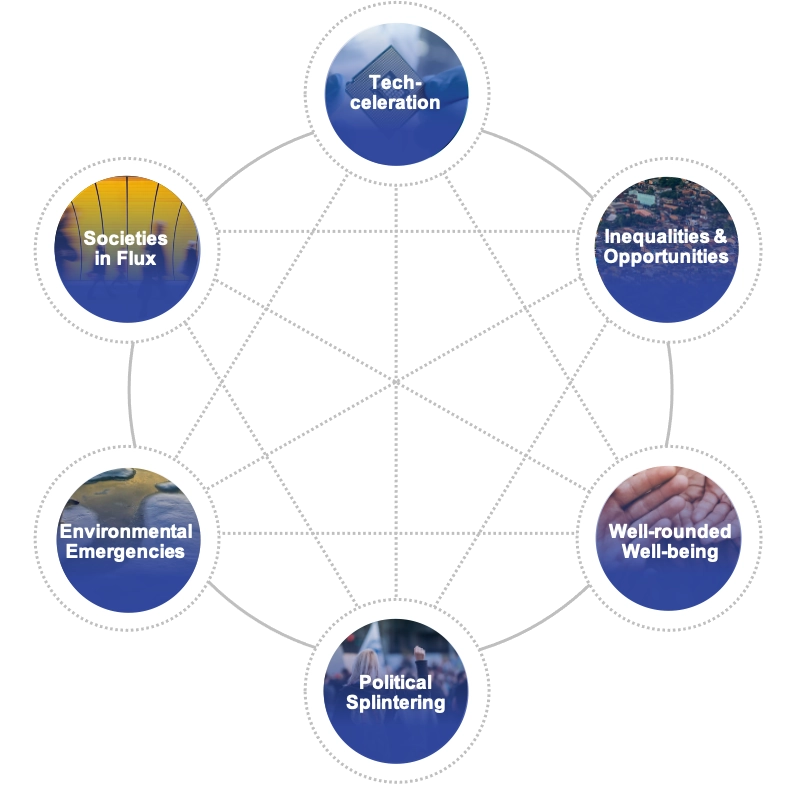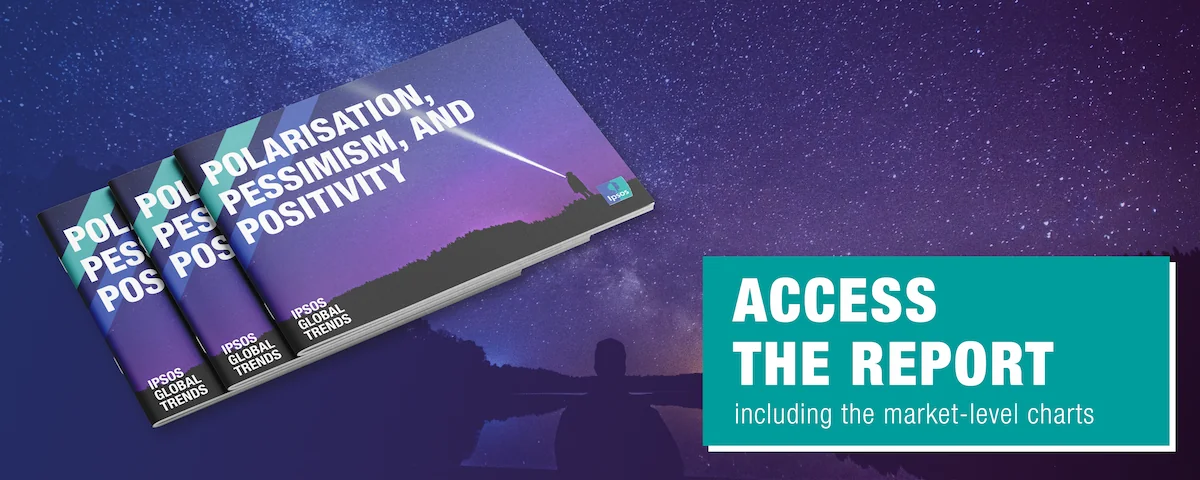

Ipsos releases an update to Global Trends 2023: Polarisation, Pessimism and Positivity
What should businesses and institutions look out for in 2023?
Our study, comprised of 24,220 interviews across 31 markets, shows signs that today’s crises are causing people to retreat and focus more inwardly on themselves and their world rather than on the broader problems swirling around them. We highlight five stories to monitor and prepare for:
Story 1: The polycrisis wears on
2023 has been a challenging year marked by multiple global crises. Despite this, there has been no real change in the number of global citizens who think that the world today is changing too fast (75% in 2013 Vs 76% in 2023). The pace of change is always a concern, no matter how unstable the macro context is.
Story 2: Climate action collides with reality
The green transition is under way, with countries legislating their commitments to net zero. Tackling climate change is still important for a large majority around the world. However, people are becoming more cautious in their attitudes towards climate change, as they are also facing rising cost-of-living pressures.
Story 3: Brand values lose ground to value brands
The continued rise of brand/value alignment is another casualty of tougher economic times. Consumers are becoming more cautious with their spending and are less likely to buy brands that reflect their personal values. This trend is more pronounced in developed markets and among lower-income and less-educated consumers.
Story 4: Science faces headwinds
Science and scientific professions remain highly trusted in countries around the world, but sentiment is flat or declining rather than increasing, despite the many significant discoveries that science continues to make. In every region, the trend for optimism about science is on the decline.
Story 5: Globalisation: a local story
The improved standing of globalisation has been one of the key stories throughout the ten years of Ipsos Global Trends. This year, as globalisation comes under increasing strain, we see this value holding steady – but showing localised signs of tension that point to further change in the years ahead.
“Preparing for one singular issue is no longer enough,” says Billie Ing, Global Head of Trends and Foresight at Ipsos Strategy3. “Be mindful of how the cost-of-living crisis is impacting attitudes towards brands and climate, and at the macro level, thinking ahead and planning for compounding factors is crucial. As the polycrisis grinds on, it will take systemic thinking, collaboration, and foresight to prepare for both opportunities and threats.”
Making the right decisions as the polycrisis continues.
Our Ipsos Global Trends programme, which has been running since 2013, provides the evidence and data needed to inform decisions across a range of plausible future scenarios.

In this short update, we share how the six Macro Forces from our main launch earlier this year are interacting to amplify both positive and negative outcomes over the next few decades, and we review the changes we see in our Global Trends framework.
Our story reflects the top-line data. For a deeper dive please contact us for a custom analysis of this rich data source.
Please stay tuned for a major release next year, where Ipsos will be celebrating 10 years since the launch of this flagship programme.
About this study
These are the results of a 31-country survey conducted by Ipsos on its Global Advisor online platform and, in India, on its IndiaBus platform, between Friday, September 22 and Friday, October 6, 2023. For this survey Ipsos interviewed a total of 24,220 adults aged 18 years and older in India, 18-74 in Canada, Republic of Ireland, Israel, Malaysia, New Zealand, South Africa, Turkey, and the United States, 20-74 in Thailand, 21-74 in Indonesia and Singapore, and 16-74 in all other countries.




